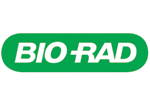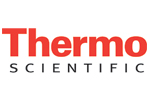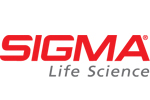08:00 | Registration |
09:00 |  | Keynote Presentation On the Consequences of Foreign DNA Insertions into Mammalian Genomes
Walter Doerfler, Professor, University of Erlangen Nurnberg, Germany
Activity and function of eukaryotic genomes are subject to complex modifications. The fifth nucleotide in DNA, 5-methyldeoxycytidine, is essential in the multitude of regulatory processes whose understanding has become paramount for all fields of genetics and may hold the key in the interactions between the genome and the environment. In this presentation, three aspects of this global topic will be presented: i) The de novo methylation of integrated foreign DNA. ii) Global alterations of DNA methylation patterns upon the insertion of foreign DNA into eukaryotic genomes. iii)A methylation boundary to safeguard the activity of the human FMR1 promoter. |
|
|
Session: Epigenetics in Development and Disease Processes |
| |
09:30 | Epigenetics of Renal Cell Carcinoma: The Path Towards New Diagnostics and Therapeutics
Eamonn Maher, Professor, University of Birmingham, United Kingdom
I will review the molecular pathology of renal cell carcinoma and the role of epigenetically silenced tumour suppressor genes in RCC and their relationship to pathways of tumor development. |
10:00 | Quantitative Analysis of DNA Methylation Data at Single Nucleotide Level Using Pyrosequencing
Norbert Hochstein, Scientist, Qiagen, United Kingdom
This seminar describes the solutions and methodology underlying analysis of precious samples, and illustrates how Pyrosequencing can be used as a powerful tool for data analysis and validation of results from other commonly used epigenetic research techniques. |
10:30 | Coffee Break and Networking in the Exhibition Hall |
11:15 | Characterization of Age-Related DNA Methylation Changes
Frank Lyko, Group Leader, German Cancer Research Center, Germany
The presentation will provide a detailed characterization of age-related DNA methylation changes in human tissues a discuss the implications of these observations for human aging. |
11:45 | Histone Turnover and Inheritance in Budding Yeast
Fred van Leeuwen, Group Leader, Netherlands Cancer Institute, Netherlands
Histone modifications are very dynamic. However, histones themselves can also be moved or replaced. Using the novel RITE genetic pulse chase method we are determining the patterns and mechanisms of histone turnover and inheritance to determine how they influence the epigenome |
12:15 |  Technology Spotlight: Technology Spotlight:
Analysis of Complex Patterns of DNA Methylation
Dave Mukhopadhyay, Senior Scientist, Bio Rad Laboratories Inc
|
12:30 | Lunch and Networking in the Exhibition Hall |
12:45 |  Free Workshop Free Workshop
Improving Your qPCR Results: A Systematic Approach to Understanding qPCR Detection
|
13:30 | Poster Viewing Session |
14:15 | Epigenetic Inheritance of Growth Rate Heterogeneity as a Mechanism for Persistence of Mycobacterium Tuberculosis
Johnjoe McFadden, Professor, University of Surrey, United Kingdom
My research is focussed on using systems biology approaches to understanding the pathogenesis of bacterial diseases such as tuberculosis and meningitis |
14:45 | The Effect of Early Life Nutrition on the Epigenome and Implications for Human Disease
Karen Lillycrop, Senior Lecturer, University of Southampton, United Kingdom
Early life environment can induce stable changes to the epigenome which alter an individual’s susceptibility to a range of chronic diseases in later life. The role of epigenetics in the developmental origins of disease and its implications will be discussed. |
15:15 | Coffee Break and Networking in the Exhibition Hall |
16:00 | Uropathogenic E. coli Infection Leads to CDKN2A (p16INK4A) Hypermethylation in Uroepithelial Cells
Cornelia Toelg, Research Associate/Post-doctoral Fellow, Hospital for Sick Children, Canada
Recently, H.pylori infection of the stomach has been correlated with epigenetic changes in the host genome. To identify epigenetic changes during E.coli induced urinary tract infection (UTI), we developed an in vitro model of persistent infection of human uroepithelial cells with uropathogenic E.coli (UPEC) resulting in intracellular bacteria colonies without inducing host cell apoptosis. |
16:30 | TET DNA Hydroxylases in Development and Disease
Paul Cloos, Associate Professor, Copenhagen University, Denmark
The talk will present recent data on TET proteins, including target genes, molecular partners and discuss the potential biological roles of 5-HMC and the Tet proteins. |
17:00 | Programming DNA Methylation During Development
Irina Stancheva, Lab Head, University of Edinburgh, United Kingdom
Stable patterns of gene expression during development and differentiation are achieved by sequence-specific transcription factors as well as epigenetic mechanisms that facilitate the establishment and propagation of heritable chromatin states. The talk will discuss the role of chromatin remodelling ATPase LSH and G9a/GLP complex of histone methylases in developmentally-programmed DNA methylation. |
17:30 | Drinks Reception |






